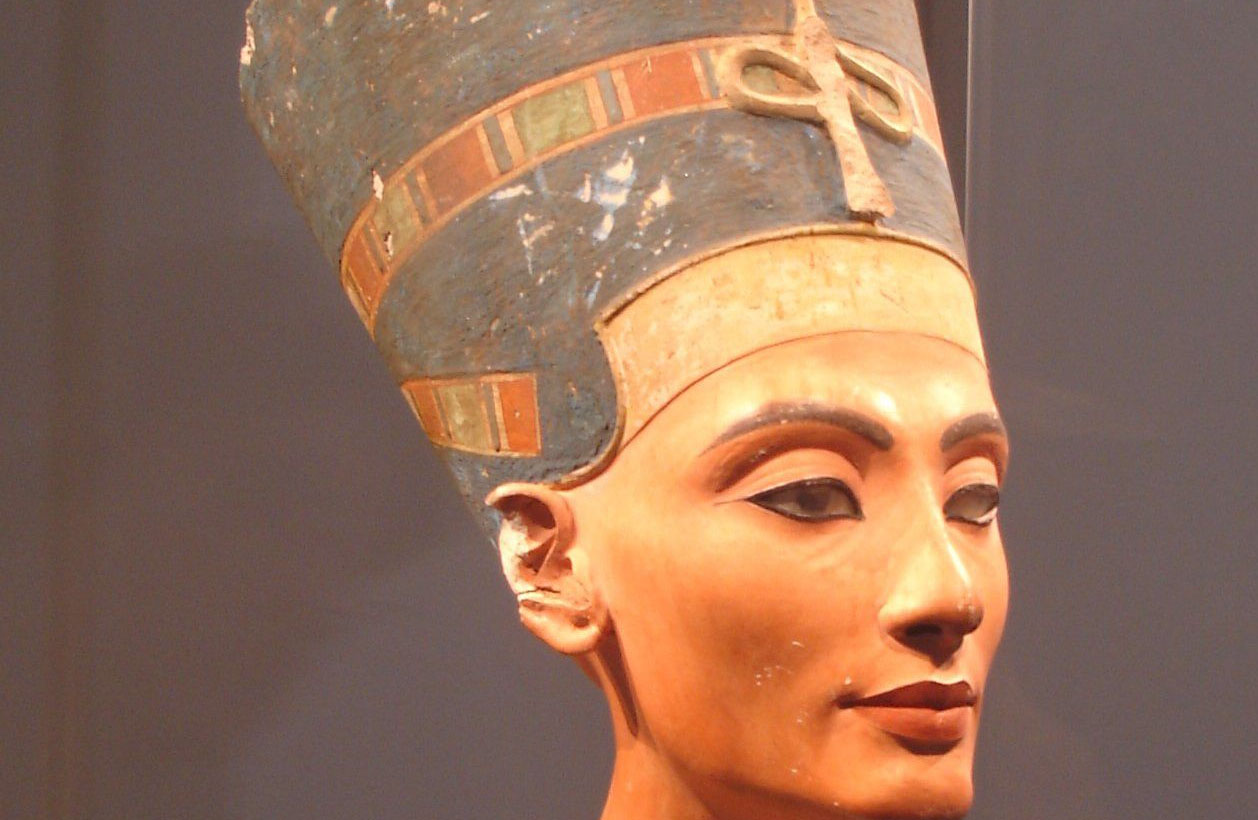
Photo Credit: Getty Images
Over 3,000 years ago, in the golden sands of ancient Egypt, a queen's radiance captivated the world. Her name? Nefertiti, which fittingly translates to "The Beautiful One Has Come." Yet, Nefertiti was much more than a figure of beauty; she was a ruler, a revolutionary, and a timeless icon whose influence continues to shape the world's imagination.
Nefertiti was the wife of Pharaoh Akhenaten, the controversial ruler who dared to upend centuries of tradition by replacing Egypt's pantheon of gods with the singular worship of Aten, the sun disk. Together, they led a religious revolution that redefined Egyptian culture, moving the capital to a new city, Akhetaten (modern-day Amarna), dedicated to Aten's worship.
But Nefertiti wasn't just a queen standing in the shadow of her husband. Historical depictions show her participating in religious ceremonies and state affairs as an equal to Akhenaten, a rarity in a male-dominated society. She is even believed to have wielded significant political power, with some theories suggesting she co-ruled alongside the pharaoh or even ruled independently under the name Neferneferuaten after Akhenaten's death.
After the twelfth year of Akhenaten's reign, Nefertiti vanished from historical records, leaving historians puzzled. Did she fall from grace? Was she exiled? Or did she assume a new identity to continue her reign? Her disappearance remains one of Egyptology's greatest mysteries, adding an air of intrigue to her already fascinating legacy.
Nefertiti's legacy is perhaps most famously embodied in her bust, discovered in 1912 by German archaeologists in Amarna. With her symmetrical features, regal posture, and iconic crown, the bust is a masterpiece of ancient art and a symbol of timeless beauty. Today, it resides in Berlin's Neues Museum, drawing millions of admirers annually and igniting debates over cultural heritage and repatriation.
Her iconic style—defined by her bold eyeliner, elaborate headdresses, and confident gaze—has inspired fashion, art, and popular culture for centuries. From Rihanna's Nefertiti tattoo to Beyoncé's homage in her music videos, the queen's influence is alive and well in modern media.
Beyond her beauty, Nefertiti has become a symbol of female empowerment and resilience. Embraced as a figure of strength in Black culture, she represents the enduring power of women to shape history and defy societal norms. Her story resonates across cultures, serving as a reminder of the profound impact a single individual can have.
Nefertiti's life and legacy are a testament to her enduring allure as both a ruler and a cultural icon. She was a queen who wielded power with grace, a visionary who challenged norms, and a woman whose image transcends time. In her, we see the fusion of beauty, strength, and mystery—a legacy that ensures her story will continue to inspire generations to come.
















